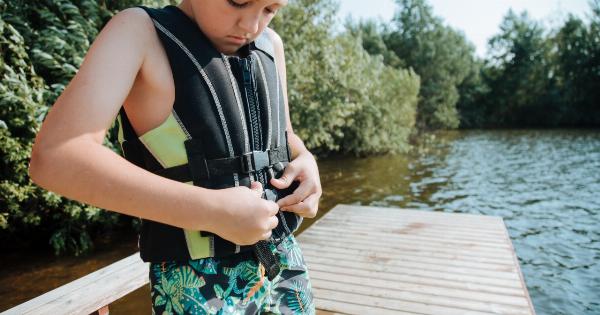Summer is here, and that means it’s time to hit the water for some fun in the sun. Whether you’re planning on diving deep or simply swimming in the pool, it’s important to prioritize safety.
The team at ELS has put together some essential advice to ensure you have a safe and enjoyable experience while diving and swimming this summer.
1. Learn to Swim
One of the most important things you can do to stay safe in the water is to learn how to swim. If you’re not already a strong swimmer, consider taking swimming lessons to improve your skills.
Knowing how to swim not only increases your safety in the water but also allows you to fully enjoy all the activities that come with it.
2. Always Dive in Designated Areas
When it comes to diving, it’s crucial to dive only in designated areas. These areas are carefully checked and maintained to ensure your safety.
Jumping or diving in shallow water can lead to serious injuries, so always heed the warning signs and follow the guidelines provided in the area.
3. Check for Hazards
Before diving or swimming, it’s essential to check the area for any potential hazards. Look out for rocks, sharp objects, or any other obstructions that can cause injuries.
If you’re at the beach, be aware of riptides or strong currents that can quickly sweep you away. Being aware of your surroundings greatly reduces the risk of accidents.
4. Never Dive Alone
Always have a buddy when diving or swimming, especially in open water. Having someone with you ensures that there is immediate help available if an emergency occurs. Additionally, your buddy can keep an eye on you and offer assistance if needed.
Remember, safety is always a team effort.
5. Wear Appropriate Gear
When diving, it’s important to wear the right gear to protect yourself. Ensure you have a well-fitting mask, snorkel, fins, and a weight belt if necessary.
When swimming, wearing a properly fitted life jacket can be a lifesaver, especially for beginners or those who are not confident swimmers. Wearing the right gear enhances your safety and overall experience in the water.
6. Stay Hydrated
Spending time in the water can be physically demanding, so it’s crucial to stay hydrated. Drink plenty of water before, during, and after your swimming or diving sessions. Dehydration can lead to fatigue and increase the risk of accidents.
Make it a habit to bring a bottle of water with you whenever you’re enjoying water activities.
7. Follow Diving Rules
When diving, it’s essential to follow the diving rules and guidelines. Avoid diving too deep or staying underwater for extended periods, especially if you’re not an experienced diver.
Familiarize yourself with the recommended surface intervals and always ascend slowly to prevent decompression sickness. Adhering to diving rules ensures your safety and preserves your health.
8. Be Mindful of the Sun
While swimming or diving, it’s easy to forget about sun protection. However, spending extended periods in the water can still lead to sunburns or damage to your skin.
Apply a waterproof sunscreen with a high SPF before entering the water and reapply it as necessary. Wearing protective clothing, such as a rash guard, can also provide an extra layer of sun protection.
9. Pay Attention to Weather Conditions
Before heading out for a swim or dive, always check the weather conditions. Avoid swimming in rough seas or during thunderstorms, as these conditions can be dangerous.
If you notice any signs of inclement weather while you’re already in the water, it’s crucial to exit immediately to ensure your safety.
10. Trust Your Instincts
Lastly, but most importantly, trust your instincts. If you don’t feel comfortable or safe diving or swimming in a particular situation, listen to your intuition and make the right decision.
Your safety should always come first, and it’s better to avoid a risky situation than to regret it later.




























